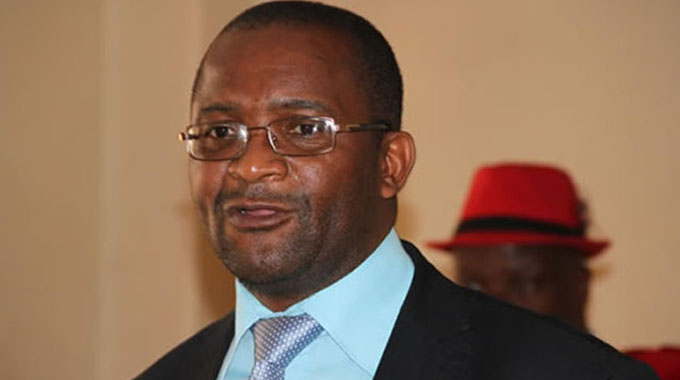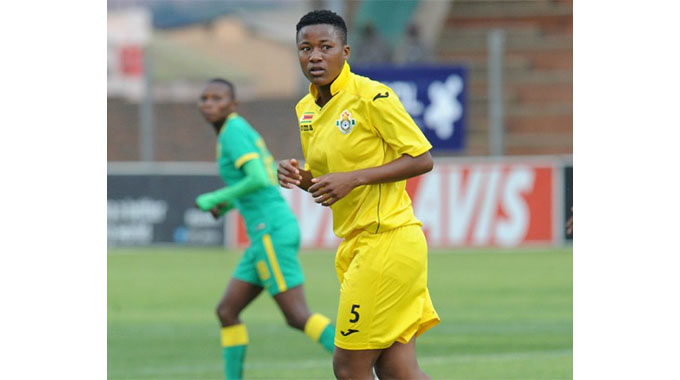Selection of judges transparent

Prosperity Mzila-Correspondent
The Constitutional Amendment Bill (No.1) which among other things, empowers President Mnangagwa to appoint the country’s Chief Justice, Deputy Chief Justice and a Judge President, sailed through Senate, sending the opposition MDC Alliance to go up in arms against a transparent democratic process.
The MDC Alliance claimed that Zanu PF entered into a pact with the MDC-T to vote for the Bill in return for some ridiculous partnership in destroying the already troubled MDC Alliance.
For the record, there is nothing unique about the President of Zimbabwe selecting and appointing the said judges, this is not in any way exceptional to Zimbabwe.
There is a belief that the United States is the epitome of democracy, whatever criteria was used to confer that title beats me, however, that being the case and the MDC Alliance’s measuring bar, the US will be an example in this case.
A closer look at how the US selects its own chief justice and Supreme Court judges indicates that the process in Zimbabwe is a lot more transparent as the President gets to pick his Chief Justice from the names selected by the Judiciary Services Commission (JSC) after their due diligence.
The JSC then forwards its shortlist for the President to choose the candidates from.
Whereas, in the US the president selects the candidate and sends the name to the Senate for endorsement.
In other instances, the US president can appoint a chief justice without the approval of Senate if the sitting judge dies, retires or resigns when the Senate is in recess.
Knowing the US and its scheming, this can be arranged just for purposes of achieving a desired end.
According to EverCSReport.com, in the US, the process of appointing a chief justice is the same as appointing associate justices and typically involves sharing of responsibilities between the president, who nominates the judges and the Senate, which provides “advice and consent.”
(Exceptions to this have been rare instances when the president has made temporary “recess appointments” to the court, which do not require the Senate’s approval.)
Vacancies on the court can occur as a result of death, retirement or resignation of a judge.
A comparison of the two shows that the US president wields more power in the selection of the chief justice and other Supreme Court judges, and gets to select Judges that have the same ideology and political inclination as he does.
He then sends two identical candidates to the Senate for endorsement.
In Zimbabwe, the selection is done by the JSC after conducting due diligence, which provides names of Judges short-listed and the president can then make his choice.
The appointment of a chief justice is an event of major significance in any country, more so in Zimbabwe just as much as in the US, therefore it is necessary that the President and the chief justice see the world and the politics of the country through the same lenses.
The appointment, therefore, becomes of consequence because of the enormous judicial power the chief justice wields as the highest appellate court in the country’s judiciary.
One is forced to think that the previous system of public interviews gave a glimmer of hope to the MDC Alliance and its cronies to a possible sneak in of its Trojan horse in any of the three powerful positions.
If by any chance their bad apple makes it to the chief justice office, the regime change agenda would have been achieved, because anytime they can call for an impeachment.
The removal of public interviews means they are not in a position to put their plans into action.
This could explain why the likes of Tendai Biti and Jonathan Moyo couldn’t get a wink’s sleep as they were mauling over the Bill having sailed through, they would have preferred a situation where they sneak in their bad apples.
Therefore, it is only natural for a President to use a criteria which is favourable to him and his political views in selecting Justices to place on the critical judicial positions, which would involve policy and political considerations, as well as a desire to select a person with outstanding professional qualifications and unquestioned integrity.
Jonathan Moyo seemed torn that his plans were once again scattered on the drawing board.
He must have been banking on all, if not one, of the judicial appointments to be his pawns.
It’s rather embarrassing that he chooses to attack Douglas Mwonzora, the legitimate leader of the MDC-T, accusing him of working with Zanu PF in the Senate to ensure the Bill sails through.
Unfortunately for Jonathan Moyo, Zimbabwe is a democracy, though young, it respects the people’s right to choose what they want, equally, the Senators chose to vote for the Constitutional Amendment (No.1).
They knew the implications of voting against the Bill. They are harbouring ambitions of becoming the ruling party and they would want to choose a Chief Justice, his deputy and a Judge President, all with political and ideological inclination similar to theirs.
Meanwhile, word going around on Twitter is that Mwonzora and his MDC-T sold out to Zanu PF to form a coalition against the MDC-A.
The claims are absurd, coming from a party that has been torn to shreds by defections, with defectors claiming that the party lacks people centred policies — it’s a money making party of executives.
People are defecting in their hundreds and as usual the MDC Alliance instead of introspecting and looking within, tries to blame Zanu PF, Mwonzora and his MDC-T.
Biti is so irked that he is even threatening to take the matter of the Bill to court to challenge its legal standing.
If he indeed goes to court, the case should be thrown out with costs and the contempt it deserves. Jonathan Moyo is no better with his attempts to seek relevance through tweeting every story in every newspaper that speaks against Zanu PF.
His desperation is repulsive, it’s about time he pursued another hobby for he has lost all credibility.









Comments